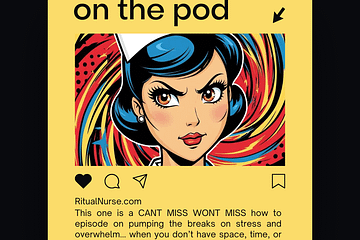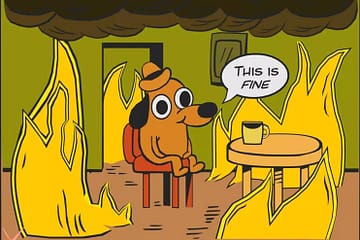The Four Agreements of Nursing: A Path Back to Center

As nurses, we often carry more than the physical weight of a shift. We carry emotional burdens, systemic failures, personal expectations, and the unrelenting pressure to be everything for everyone. When I finally picked up The Four Agreements by Don Miguel Ruiz, I wasn’t expecting to find a name for the boundaries and structure I had created for myself, but that’s exactly what happened.
What struck me most was how these agreements mirror what I’ve had to learn, unlearn, and relearn across a decade in this profession. Not because they were ever formally taught to me, but because survival demanded it. What The Four Agreements offers is not a how-to manual for nurses, but a reframing of how we show up for our patients, our teams, and ourselves.
Let’s look at what these agreements can mean in the context of nursing.
Be Impeccable With Your Practice
Ruiz’s original phrase is “Be impeccable with your word.” But for nurses, it is our practice that often speaks louder than anything we say. Being impeccable here means more than clinical competence. It means self-awareness. It means staying current, being honest about your knowledge gaps, documenting with integrity, and practicing within both your legal and personal limits.
This isn’t about perfection. It’s about consistency and clarity. When you’re impeccable with your practice, you are protecting your patients and your license. You’re also signaling to yourself and your colleagues that you take this work seriously. Not as a performance, but as a responsibility.
Don’t Take the System Personally
Of all the agreements, this one took me the longest to learn. Because in nursing, everything feels personal. When a patient yells. When a physician criticizes. When a staffing matrix leaves you drowning. It feels like you are the failure.
But here’s what changed everything for me: realizing that none of that is actually about me. Most of the time, it’s about grief. It’s about fear. It’s about a healthcare system that hasn’t yet made space for sustainable, trauma-informed, human-centered care and expects nurses to fill the gaps with emotional labor they never asked for.
Learning not to internalize the failures of the system doesn’t mean you stop advocating. It means you stop bleeding for a machine that never learned how to stop asking.
Don’t Make Assumptions
Assumptions in healthcare are more than just risky they’re dangerous. Assuming a patient has been assessed. Assuming a med was verified. Assuming someone else caught the error.
As nurses, we’ve been taught to be team players. But sometimes that leads us to stay silent instead of asking the question we’re afraid makes us look inexperienced. And in doing so, we put safety at risk.
What I’ve learned over the years is this: the nurse who keeps asking questions even after years in practice is often the safest nurse in the room. Humility is not weakness. It’s protection.
Always Do Your Sustainable Best
This one is personal for me. Because for years, I believed my “best” had to be a version of perfection. The fully prepared nurse. The always-available colleague. The extra-shift, no-boundary, do-it-all caregiver.
But that version of my best was unsustainable and it almost broke me.
Now, I define my best as whatever protects my longevity in this profession. Some days that means excellence. Other days it means survival. Both are valid. The key is to recognize when you’ve done enough, and to let that be enough.
Sustainable best is not about lowering the bar. It’s about setting one you can live under without losing yourself.
Returning to the Ritual
In this week’s podcast episode, I shared how I’ve made even the smallest part of my day into intentional acts of care. A cup of coffee. A moment to breathe. A crystal on my desk. A card pulled not for answers, but for reflection.
These rituals are not indulgent. They are reminders. They help me return to myself in a field that so often asks me to fragment. And this week’s crystal and tarot message were no exception, powerful reflections of independence, authenticity, and the joy that can still live in this work when we learn how to make space for it.
A Question for You
If any of this resonates with you, I’d love to know:
Which of the Four Agreements is hardest for you right now?
You can message me privately or reach out using the text link in the show notes. You don’t have to share your name. You don’t have to tell your whole story. Just take the step. Let someone see you.
Because that’s how we heal by remembering we’re not in this alone.
Listen to the full episode:
The Four Agreements of Nursing
Now streaming wherever you get your podcasts.
Love your fayces,
Riva



0 Comments